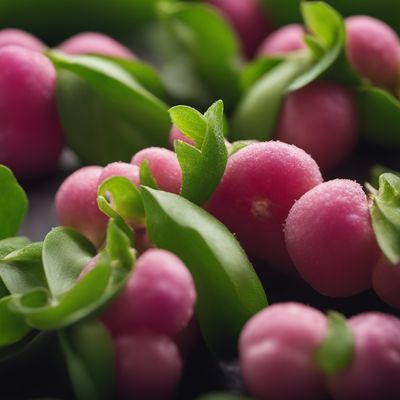
Ingredient
Jerusalem artichokes
The Versatile Tubers
Jerusalem artichokes are knobby, root vegetables that resemble ginger or small potatoes. They have a slightly sweet and nutty flavor, with a crisp and crunchy texture when raw, similar to water chestnuts. When cooked, they become tender and develop a creamy consistency. Jerusalem artichokes have a rich history, originating from North America and were cultivated by Native American tribes long before European settlers arrived. They were introduced to Europe by French explorers in the 17th century and gained popularity as a culinary ingredient.
Origins and history
Sweet and nutty with a crisp, crunchy texture when raw, and tender and creamy when cooked.
Nutritional information
Some individuals may be allergic to Jerusalem artichokes, particularly those who are sensitive to other members of the sunflower family, such as sunflower seeds or ragweed.
Allergens
When selecting Jerusalem artichokes, look for firm tubers that are free from blemishes, mold, or soft spots. Avoid tubers that appear shriveled or have sprouted. Choose smaller, smoother tubers for a milder flavor and easier preparation.
How to select
Jerusalem artichokes can be grown in home gardens or containers, requiring well-drained soil and full sun. Plant the tubers in early spring, spacing them about 12 inches apart. Regular watering and occasional fertilization will help the plants thrive. Harvest the tubers in late fall or early winter when the foliage has died back, using a garden fork to gently lift them from the ground.
Storage recommendations
Potatoes can be used as a substitute for Jerusalem artichokes in recipes that call for a similar texture and flavor. However, keep in mind that the taste will be slightly different. Other root vegetables, such as parsnips or turnips, can also be used as alternatives in certain dishes.
How to produce
To maintain the freshness of Jerusalem artichokes, store them in a cool, dark place, such as a root cellar or refrigerator. They can be stored for up to two weeks. Before using, scrub the tubers under cold water to remove any dirt or debris. Jerusalem artichokes can be enjoyed raw in salads, sliced and roasted, pureed into soups, or used as a substitute for potatoes in various recipes.
Preparation tips
Jerusalem artichokes can be used in a variety of culinary applications. They can be enjoyed raw in salads for a crunchy texture, roasted as a side dish, pureed into soups for a creamy consistency, or pickled for a tangy flavor. They can also be used in stir-fries, gratins, and even desserts like cakes and muffins.
Availability
Jerusalem artichokes are commonly available in North America, Europe, and other regions with suitable climates for cultivation. They are often found in farmers markets, specialty grocery stores, and some supermarkets.
More ingredients from this category

Mashua
The Vibrant And Versatile Mashua: A Hidden Gem in the Culinary World

Crosnes
The Delicate Tubers

Oca
The Vibrant And Versatile Oca: A Hidden Gem in the Culinary World

Tuberous peas
The Hidden Gem: Unveiling the Tuberous Pea

Pale-leaf sunflower
The Delicate Beauty of the Sunflower's Pale-Leaf Sibling